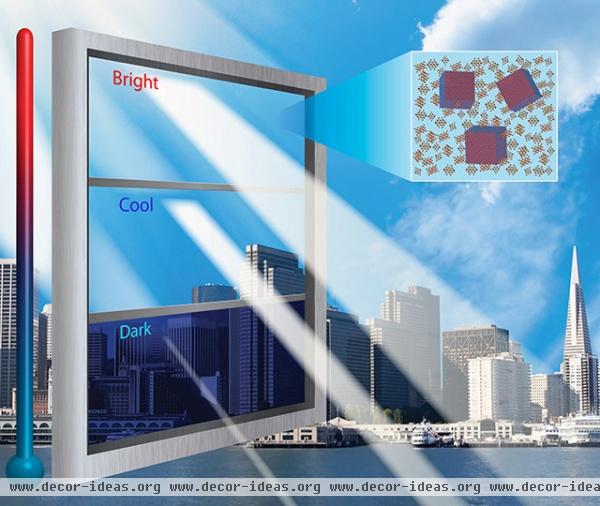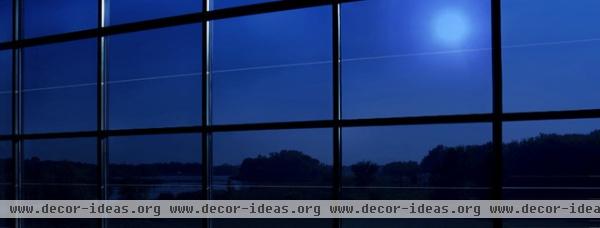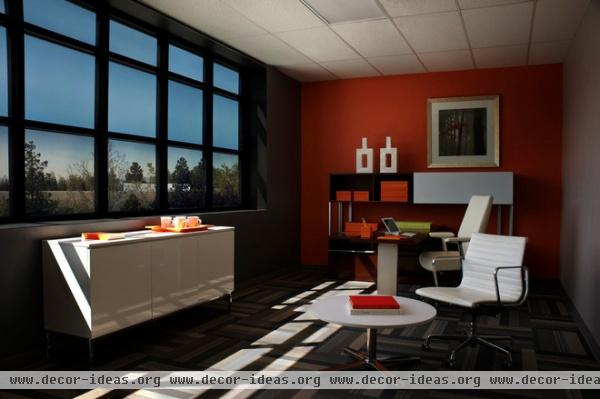Is It Curtains for Curtains? Smart Glass Eliminates Window Coverings
http://decor-ideas.org 11/12/2013 20:20 Decor Ideas
Smart windows are made with a special high-tech glass that can quickly change from clear to tinted or that can selectively block heat, light or glare. Smart glass is also sometimes called dynamic glass or switchable glass.
Eventually glass will get really smart, functioning as a computer screen with the touch of a button. But that won’t happen for 10 years or so. For now the next big thing is smart glass that replaces shades, blinds and curtains. Residential smart glass is expected to cost about twice as much as conventional glass, but it can cut heating and cooling costs, so you can theoretically recoup the added expense.

Research on smart glass makes the promise of new technologies clear. The Lawrence Berkeley National Laboratory in California, for example, has been working with the Institute for the Science of Materials in Spain to embed a special formulation with tin oxide nanocrystals into new smart glass. It’s complicated stuff, but the bottom line of their research is that smart glass can one day be less expensive — possibly as low as $100 per square foot — because the glass can be made at relatively low temperatures.
The Benefits of Smart Glass
The result is a glass than can block heat and light independently of each other — for example, it can block the heat but let sunshine in.
Turn a dial to apply a small amount of electricity to the glass, and it will absorb infrared light, greatly reducing the heat from the sunlight coming through the glass. Turn another dial, and the glass will go dark. Both heat and light can be adjusted to your preference, each turned all the way up or down.
Researchers have formed a California startup, called Heliotrope, to further develop and market the technology.

One of the largest makers of smart glass is a company called SageGlass, which makes electronically tintable glass, used mostly in commercial buildings so far. The company claims its smart glass enables architects to use fewer sun-control devices, which ultimately increases the amount of glass a building can have.
SageGlass' product works via a ceramic coating that darkens when very low-voltage electricity is applied. When the coating darkens, both light and heat are greatly reduced. The glass is typically used for windows, skylights and curtain walls.

Another smart-glass company to watch is View, which is a startup backed by glass giant Corning. In addition to being able to change automatically based on the light coming through the window, View’s Dynamic Glass product is also controllable from either a wall switch or a smart-phone app.
There’s no question that smart-glass technology can bring down the costs of heating and cooling, and is improving the options for controlling light and heat not with shades, blinds and curtains but with changes in the glass itself.
The future of home windows looks very bright. Or dark. It’s up to you.
More: Turn Your Kitchen Counter Into a Touch Screen
Related Articles Recommended












